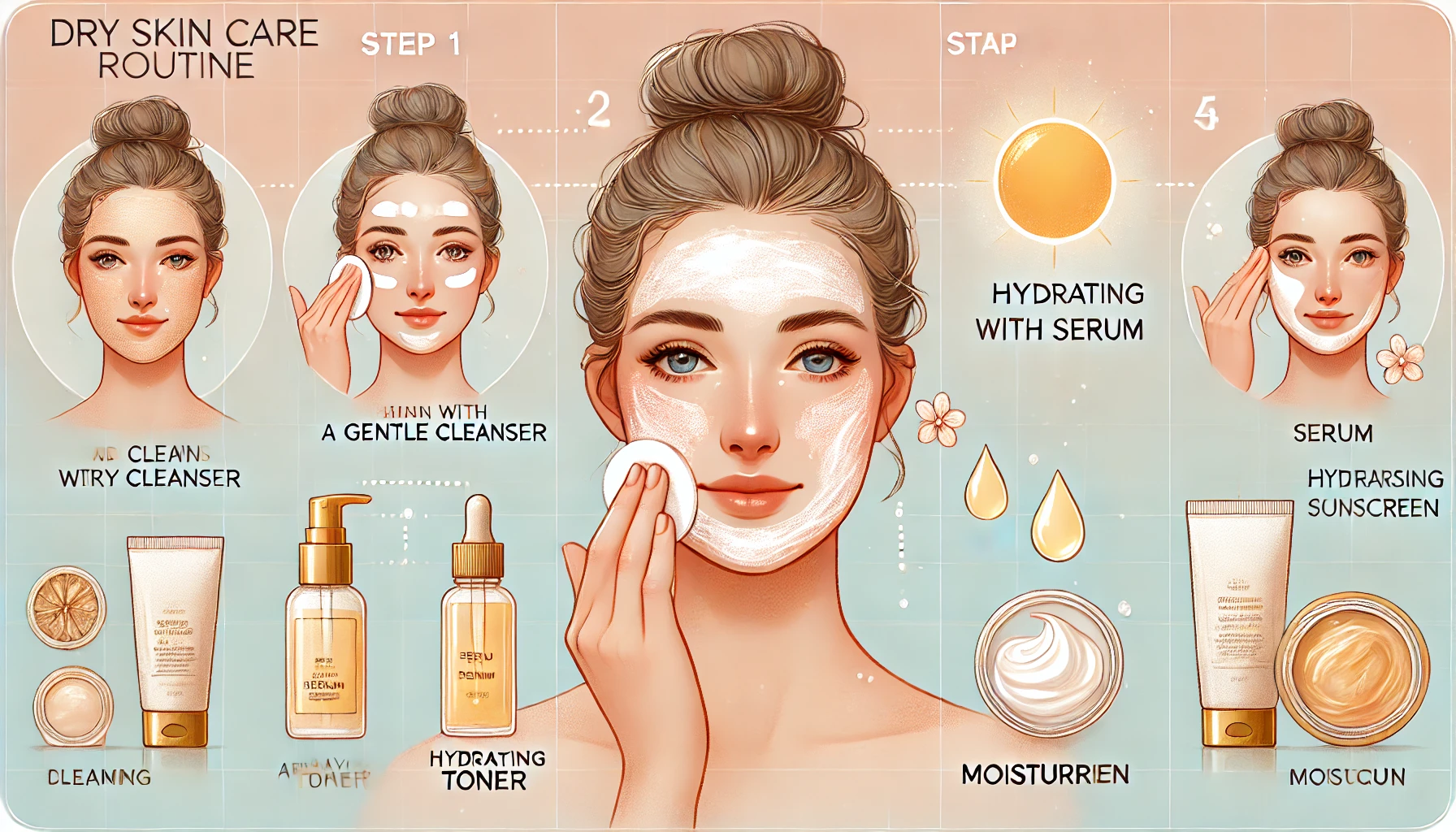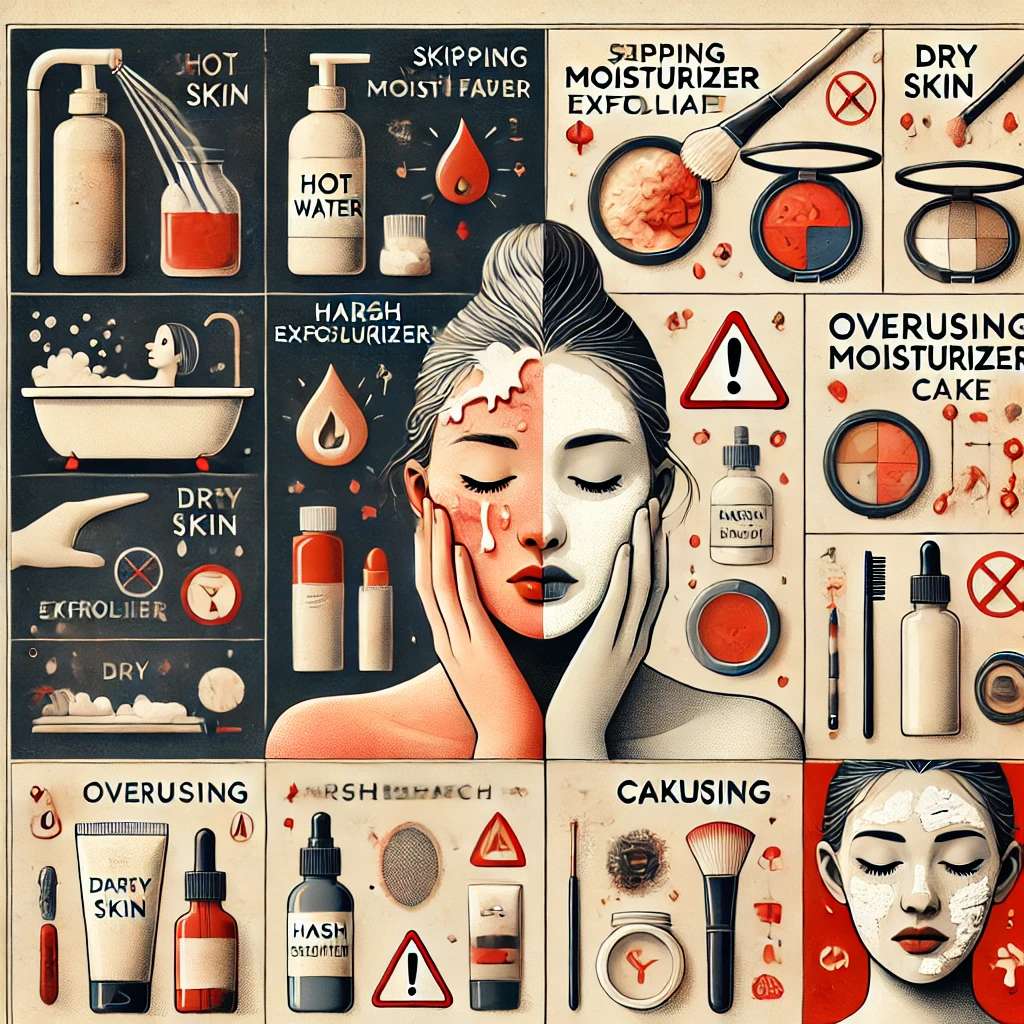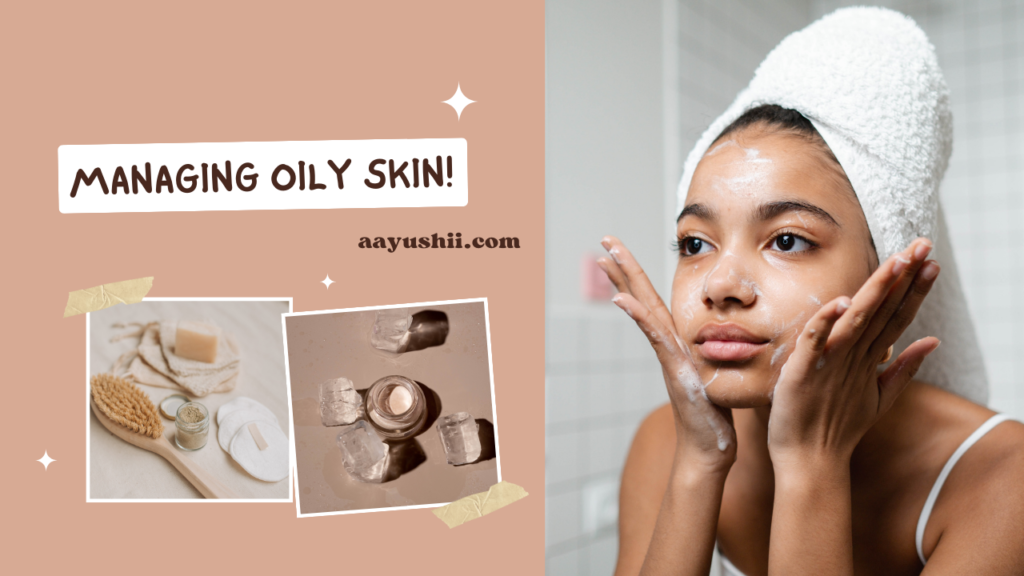Dry skin, often marked by tightness, flakiness, and irritation, is a common yet challenging condition. Whether caused by environmental stressors, lifestyle habits, or skin disorders, addressing dry skin involves restoring moisture, repairing the skin’s barrier, and using targeted treatments. Achieving smooth, hydrated skin requires understanding the underlying causes of dryness and selecting the most effective ingredients to treat it. In this article, we will explore the root causes of dry skin, discuss the science behind it, and introduce unique, research-backed ingredients and products that offer powerful solutions.
What Makes Dry Skin Unique?
Dry skin occurs when the skin’s natural barrier is unable to retain moisture or produce enough oils to stay hydrated. It may result in a dull complexion, rough texture, or even sensitivity. Abnormal dry skin, also known as xerosis, occurs when the skin’s outermost layer (the stratum corneum) loses moisture faster than it can be replenished. This leads to visible symptoms like tightness, rough texture, and cracks in the skin.
Causes of Dry Skin

Unlike combination or oily skin, dry skin consistently lacks moisture across all zones, requiring a targeted and comprehensive care approach. Various internal and external factors can contribute to dry skin, and understanding these causes is key to developing an effective skincare regimen.
1. Genetic Predisposition
Genetics significantly influence your skin’s ability to retain moisture. If your family members struggle with dry skin, you might have inherited a lower production of sebum (the skin’s natural oil) or a compromised skin barrier.
2. Environmental Factors
Environmental elements like cold weather, low humidity, and harsh winds strip moisture from your skin. Indoor heating systems during winter can exacerbate the issue by creating excessively dry air, leaving the skin parched.
3. Medical Conditions and Medications
Skin disorders like eczema and psoriasis disrupt the skin’s ability to retain moisture. Certain medications, such as diuretics, antihistamines, or acne treatments like isotretinoin, can also exacerbate dryness.
4. Low Sebum Quality
Even if your skin produces oil, the composition of sebum may lack the essential fatty acids needed to lock in moisture. Poor-quality sebum contributes to a weak skin barrier.
5. Lifestyle Choices
Long, hot showers and using skincare products with drying alcohols or fragrances can strip your skin’s natural oils. Insufficient hydration or a diet lacking omega-3 fatty acids can also worsen dryness. While hydration levels are important, deficiencies in vitamins A, D, and E, along with a lack of omega-3 fatty acids, can worsen skin dryness by impeding its ability to repair itself.
6. Hard Water Exposure
High levels of minerals like calcium and magnesium in hard water can leave a residue on the skin, disrupting its natural pH balance and reducing hydration.
7. Urban Pollution
Pollutants like particulate matter and free radicals not only age the skin but also weaken the barrier, making it harder for skin to retain moisture.
8. Aging
With age, the skin produces less sebum and natural moisturizing factors (NMFs). Additionally, collagen and elastin production decrease, leading to thinner skin that’s more prone to dehydration.
9. Microbiome Imbalance
The skin’s microbiome—a collection of beneficial bacteria—is vital in maintaining skin health. Disruptions caused by overuse of antibacterial products can strip these microbes, leading to dryness and compromised barrier function.
10. Compromised Skin Barrier
The skin barrier consists of lipids and ceramides that lock in moisture and protect against external irritants. Damage to this barrier—due to over-cleansing, harsh exfoliants, or the use of soaps with high pH levels—causes water loss and heightened sensitivity.
Science-Backed Ingredients to Nourish Dry Skin

The key to managing dry skin lies in choosing ingredients that repair, protect, and hydrate effectively. Below are unique, scientifically supported ingredients that can transform dry skin:
1. Ceramides
Ceramides are lipids naturally found in the skin, crucial for maintaining its barrier function. Topical ceramides replenish the skin’s lipid layer, locking in moisture and enhancing its ability to protect against environmental aggressors.
How It Works:
Ceramides strengthen the skin barrier and reduce water loss, improving hydration and resilience.
Recommended Products:
- Ceramide-infused moisturizers
- Barrier repair creams with ceramide complexes
2. Hyaluronic Acid
Hyaluronic acid (HA) is a humectant that attracts and retains water in the skin, offering intense hydration without feeling heavy. It works well for all skin types, especially dry and dehydrated skin.
How It Works:
One molecule of HA can hold up to 1,000 times its weight in water, ensuring deep hydration for long-lasting plumpness.
Recommended Products:
- Hyaluronic acid serums with multiple molecular weights for layered hydration
- Hydrating sheet masks with HA for instant moisture boost
3. Squalane
Derived from olive oil or sugarcane, squalane is a lightweight emollient that mimics the skin’s natural oils. It locks in moisture without clogging pores.
How It Works:
Squalane helps restore the lipid layer, prevents water loss, and soothes irritated or flaky skin.
Recommended Products:
- Squalane-based facial oils
- Hydrating cleansers with squalane
4. Glycerin
Glycerin is another powerful humectant that draws moisture into the skin and maintains hydration. It’s often paired with occlusive agents to prevent water loss.
How It Works:
Glycerin hydrates the outer layer of the skin and enhances its ability to retain water.
Recommended Products:
- Glycerin-based moisturizers
- Creams combining glycerin with occlusive agents like shea butter
5. Shea Butter
This rich emollient is packed with fatty acids and vitamins, making it ideal for softening and repairing dry, cracked skin. It also has mild anti-inflammatory properties.
How It Works:
Shea butter provides a protective barrier that seals in moisture while nourishing the skin with essential nutrients.
Recommended Products:
- Rich creams or balms with shea butter for nighttime use
- Body butters for overall hydration
6. Panthenol (Pro-Vitamin B5)
Panthenol is a soothing agent that reduces inflammation and promotes skin healing. It works synergistically with other ingredients to boost hydration.
How It Works:
Panthenol enhances skin barrier repair, improves moisture retention, and calms irritation.
Recommended Products:
- Hydrating toners with panthenol
- Multi-use balms containing panthenol for spot treatment
7. Lactic Acid
A gentle alpha hydroxy acid (AHA), lactic acid exfoliates and hydrates simultaneously. It’s particularly effective for dry, flaky skin.
How It Works:
Lactic acid removes dead skin cells and stimulates natural ceramide production, improving texture and hydration.
Recommended Products:
- Lactic acid-based lotions or serums for dry, rough patches
- Exfoliating masks with lactic acid for weekly use
8. Omega-3 and Omega-6 Fatty Acids
These essential fatty acids strengthen the lipid barrier, reducing trans epidermal water loss (TEWL) and improving skin elasticity.
How It Works:
Replenishes the skin’s natural oils and helps repair a damaged barrier.
Recommended Products:
- Skincare with evening primrose oil, borage seed oil, or squalane.
9. Snow Mushroom Extract
This unique natural ingredient is a powerhouse hydrator. Its small molecular size allows it to penetrate deeper than hyaluronic acid.
How It Works:
Provides lightweight hydration while forming a protective layer on the skin.
Recommended Products:
- Serums and masks with snow mushroom extract for intense hydration.
10. Aloe Vera
Aloe vera is widely known for its soothing and moisturizing properties. It helps hydrate dry skin and can also reduce inflammation and irritation. Aloe vera is gentle on the skin, making it ideal for sensitive and dry skin types.
How It Works:
Aloe vera moisturizes, calms inflammation, and promotes healing, making it a versatile ingredient for treating dry and irritated skin.
Recommended Products:
- Aloe vera-based moisturizers
- Soothing aloe vera gel for post-sun or irritated skin
11. Lanolin
Lanolin, derived from sheep wool, is a highly effective emollient that forms a barrier on the skin, preventing water loss. It is especially beneficial for people with extremely dry or cracked skin, as it provides long-lasting moisture and protection.
How It Works:
Lanolin locks moisture into the skin and helps repair the skin’s natural barrier, making it ideal for very dry skin or areas prone to cracking.
Recommended Products:
- Intensive overnight treatments with lanolin
- Lanolin-based creams or balms for dry, cracked areas
12. Niacinamide (Vitamin B3)
Niacinamide is a versatile ingredient that strengthens the skin barrier and reduces inflammation. It also helps the skin retain its natural oils.
How It Works:
Niacinamide increases ceramide production, soothes irritation, and reduces trans-epidermal water loss (TEWL).
Recommended Products:
- Serums or moisturizers with 5% niacinamide concentration
A Unique, Science-Backed Routine for Dry Skin

Consistency is key to managing dry skin effectively. Here’s a unique, step-by-step routine to ensure optimal hydration and repair:
1. Cleanse Gently but Thoroughly
- Why: Harsh cleansers strip the skin of its natural oils, worsening dryness.
- How: Use a non-foaming cleanser with ingredients like oat extract or glycerin.
- Tip: Limit cleansing to twice daily and avoid hot water.
2. Prep with a Hydrating Toner or Essence
- Why: Prepares the skin for better absorption of active ingredients.
- How: Opt for a toner with panthenol or snow mushroom extract.
3. Apply a Humectant-Rich Serum
- Why: Serums penetrate deeply, delivering moisture where it’s needed most.
- How: Layer hyaluronic acid or glycerin serums on slightly damp skin for optimal absorption.
4. Use an Occlusive Moisturizer
- Why: Locks in hydration while repairing the skin barrier.
- How: Look for formulas with ceramides, cholesterol, and fatty acids.
5. Protect with Sunscreen
- Why: UV rays weaken the skin barrier and exacerbate dryness.
- How: Choose a mineral-based sunscreen with moisturizing ingredients like zinc oxide and squalane.
6. Weekly Deep Nourishment
- Why: A weekly mask treatment helps replenish moisture levels.
- How: Use masks with ingredients like oat beta-glucan or shea butter for intensive hydration.
Lifestyle Tips to Support Dry Skin

- Mind Your Showers: Shorten shower times, and follow up immediately with a body moisturizer to trap water into the skin.
- Run a Humidifier: Low indoor humidity is a common cause of dry skin. Keeping a humidifier running, especially during colder months, can restore moisture to the air.
- Drink More Than Just Water: While hydration is vital, incorporating hydrating foods like cucumbers, oranges, and avocados provides essential nutrients for your skin.
- Choose Clothing Wisely: Fabrics like wool can irritate dry skin. Opt for breathable, soft materials like cotton and use hypoallergenic detergents.
- Incorporate Barrier-Strengthening Supplements: Supplements containing omega-3 fatty acids, evening primrose oil, and vitamin E can enhance skin hydration from within.
- Tailor Exfoliation: Use gentle exfoliants like lactic acid no more than twice a week to avoid over-drying your skin.
Mistakes to Avoid with Dry Skin

- Relying Solely on Hydration: Moisturizing without repairing the barrier won’t solve dryness. Use barrier-strengthening ingredients consistently.
- Over-Exfoliating: While exfoliation removes dead skin cells, overdoing it can weaken your barrier. Limit usage to gentle chemical exfoliants like lactic acid, 1-2 times a week.
- Skipping Sunscreen: Dry skin is often more sensitive to UV damage. A hydrating SPF is essential every day.
Conclusion
Dry skin care isn’t a one-size-fits-all approach. By understanding its unique causes, choosing science-backed ingredients like ceramides, snow mushroom extract, and panthenol, and following a consistent care routine, you can restore and maintain healthy, radiant skin. Coupled with mindful lifestyle changes and proactive care, dry skin can become a thing of the past. Let hydration and barrier repair be the foundation of your skincare strategy for lasting results.
FAQ: The Ultimate Guide to Managing Dry Skin
1. What causes dry skin?
Dry skin can result from multiple factors, including genetics, environmental conditions (cold or dry weather), low humidity, aging, or harsh skincare products. Underlying medical conditions like eczema or psoriasis can also contribute.
2. How do I know if I have dry skin?
Dry skin often feels tight, itchy, or rough. It may appear flaky, cracked, or even red in severe cases. If your skin regularly feels dehydrated, especially after cleansing, you likely have dry skin.
3. Can diet affect dry skin?
Yes, your diet plays a significant role in skin health. Foods rich in omega-3 fatty acids, antioxidants, and hydration-promoting nutrients like water and vitamin E can help combat dryness. Avoid excessive sugar and alcohol, which can dehydrate the skin.
4. What are the best ingredients for treating dry skin?
Look for hydrating and moisture-locking ingredients like:
- Hyaluronic Acid: Boosts hydration by drawing water into the skin.
- Ceramides: Strengthen the skin barrier and retain moisture.
- Glycerin: A humectant that attracts and binds water to the skin.
- Squalane: Mimics natural skin oils and provides deep hydration.
- Shea Butter: Offers intense moisture and soothing properties.
5. Are there specific products that work best for dry skin?
Yes, some top product types include:
- Gentle, fragrance-free cleansers: Avoid sulfates and soaps that strip the skin.
- Thick, occlusive moisturizers: Look for balms or creams with ceramides and shea butter.
- Hydrating serums: Products with hyaluronic acid or glycerin are ideal.
- Barrier repair creams: Formulas with ceramides and niacinamide help restore skin integrity.
6. Should I exfoliate if I have dry skin?
Yes, but gently. Use mild exfoliants like lactic acid or enzymes 1-2 times a week to remove dead skin cells and allow better penetration of moisturizers. Avoid harsh scrubs or over-exfoliating.
7. How can I protect my skin in winter or dry climates?
- Use a humidifier to maintain indoor moisture levels.
- Opt for heavier moisturizers or balms.
- Avoid hot showers, which strip natural oils.
- Wear protective clothing and apply sunscreen.
8. Is sunscreen necessary for dry skin?
Absolutely. Dry skin is more prone to damage from UV rays, which can worsen dryness and accelerate aging. Choose a hydrating sunscreen with SPF 30+ and ingredients like glycerin or squalane.
9. What’s the best skincare routine for dry skin?
- Cleanse: Use a gentle, non-stripping cleanser.
- Hydrate: Apply a hydrating serum like hyaluronic acid.
- Moisturize: Use a rich cream or balm to lock in hydration.
- Protect: Apply sunscreen during the day.
- Repair at night: Use a barrier repair cream or facial oil.
10. Can dry skin lead to other skin issues?
Yes, if left untreated, dry skin can lead to:
- Cracks and fissures that may become infected.
- Increased sensitivity and redness.
- Accelerated signs of aging like wrinkles and fine lines.
11. Are natural remedies effective for dry skin?
Some natural remedies, like aloe vera, coconut oil, and oatmeal baths, can soothe and moisturize dry skin. However, ensure they complement scientifically proven ingredients for optimal results.
12. How long does it take to see improvements in dry skin?
With a consistent skincare routine and proper hydration, you may see improvements within a few days to a week. For severe dryness, it may take a few weeks of diligent care.
13. Can dry skin be cured permanently?
While dry skin can be managed effectively, it may not be “cured” if caused by chronic conditions like genetics or aging. Consistent care and hydration are key to maintaining healthy skin.
14. When should I see a dermatologist for dry skin?
If your dry skin persists despite proper care or is accompanied by severe itching, redness, swelling, or cracking, consult a dermatologist. These could be signs of an underlying condition like eczema or psoriasis.





